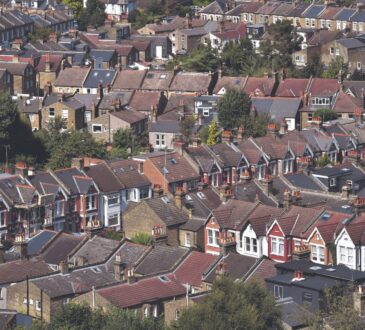
A recent analysis by Aviva, the UK’s largest home insurer, has unveiled concerning findings regarding the vulnerability of new homes in England to flooding.
 The study reveals that 8% of new homes built in the last decade, equivalent to nearly 110,000 properties, are located in flood-prone areas, specifically in national flood zone three—representing the highest risk of flooding.
The study reveals that 8% of new homes built in the last decade, equivalent to nearly 110,000 properties, are located in flood-prone areas, specifically in national flood zone three—representing the highest risk of flooding.
Despite the staggering numbers, the study shows that many residents of these new homes remain confident in their builders’ efforts to protect against flooding.
Approximately 60% of new home residents believe their home builders or developers have taken sufficient measures. However, only half of them (51%) are aware of specific measures implemented to reduce or prevent flooding.
The research also points out that even though some new homes face a higher risk of flooding, residents seem more aware of measures to enhance their properties’ resilience to climate impacts.
Forty-two percent claim to know what steps to take to improve resilience, and only 26% have not installed any resilient measures. This contrasts with 60% of residents in homes constructed before 2018 who have not taken such measures.
Jason Storah, CEO UK & Ireland General Insurance at Aviva, expressed concern over the situation. Storah noted that many newly-built homes have suffered floods within five years of construction, indicating potential issues with both location choice and construction standards.
The study also emphasises broader concerns about construction practices that could leave homeowners and tenants at risk from various climate events, including extreme weather conditions.
The report highlights that new homes built since 2009 are excluded from the Flood Re reinsurance scheme, designed to enhance the affordability and accessibility of flood insurance in high-risk areas.
Additionally, 59% of residents in homes built in the last five years believe their homes are at risk from flooding, compared to 41% of those in homes constructed before 2018.
Beyond flooding, climate concerns extend to other aspects, with 61% of new home residents expressing worry about the impact of heat on their homes, and 62% concerned about storms.
Despite these concerns, Aviva emphasises the need for collective action to address climate-related risks in construction, advocating for climate-ready housing that can withstand the multiple impacts of climate change.
Storah concluded by underlining the importance of strengthening rules to prevent construction in current and potential flood zones.
For areas where this is challenging, he suggests making flood resilience mandatory in planning rules from the outset to better protect homeowners and tenants from the devastating consequences of extreme weather events.






